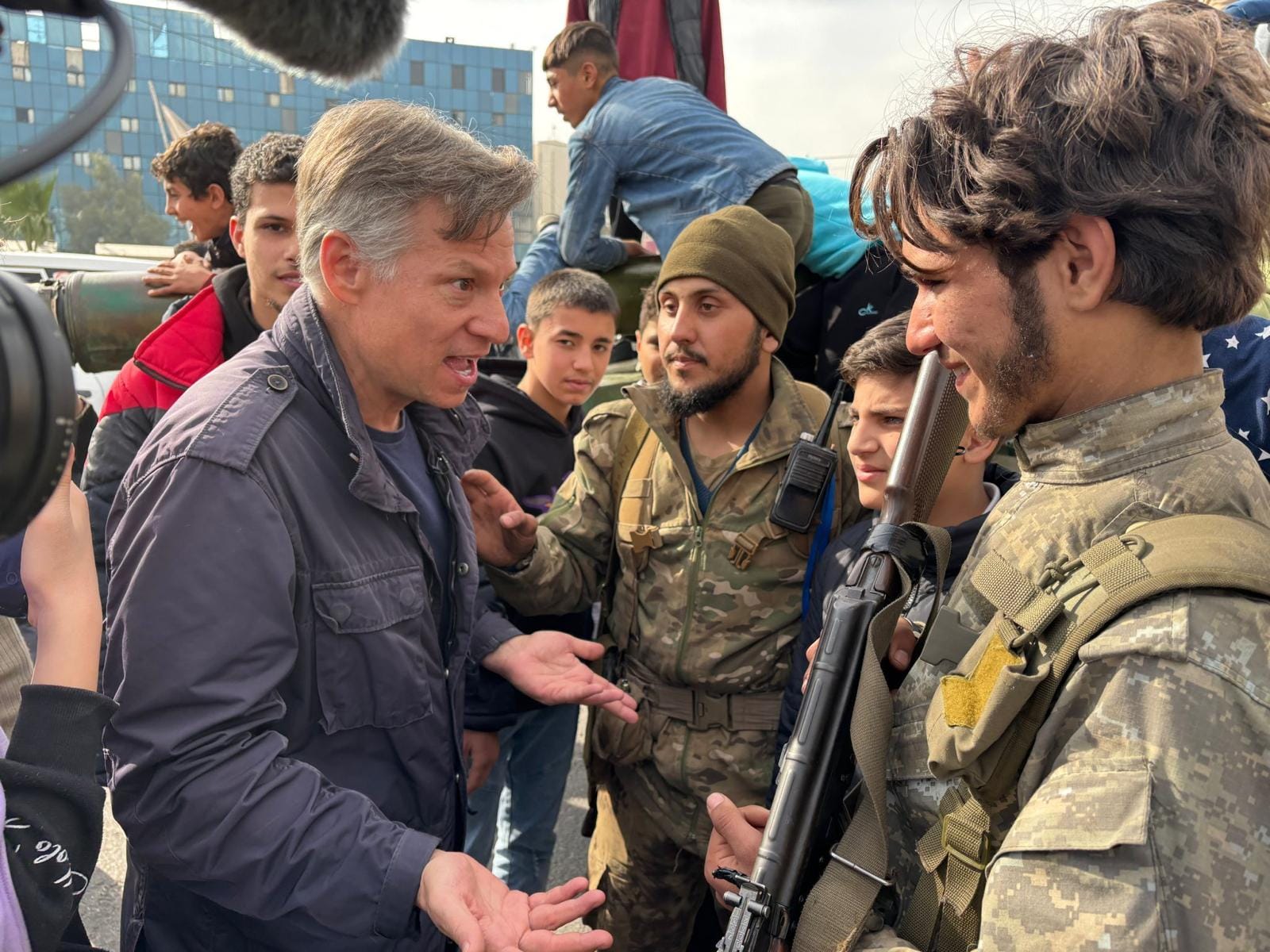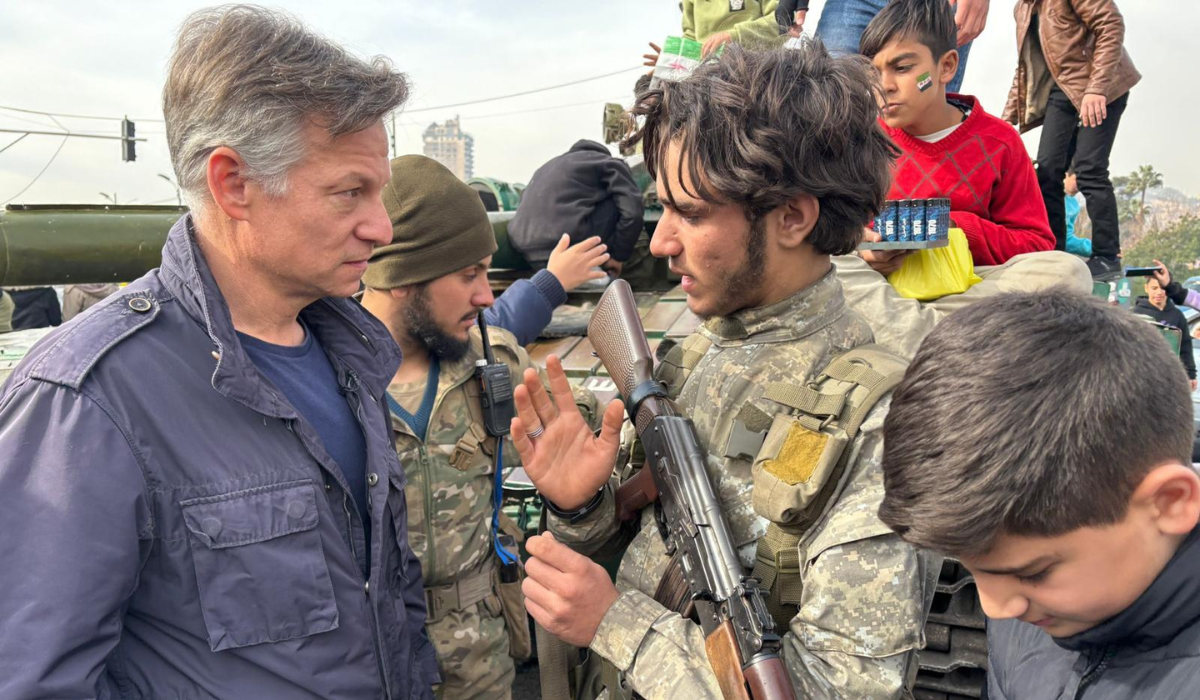Acclaimed NBC Journalist Richard Engel is Reporting from Syria. Here’s What He Wants Us to Know—and Why it Matters
Syria is amid radical change. On December 8, rebel opposition forces collapsed the country's long standing Assad regime (a brutal dictatorship that dates to 1971), causing President Bashar al-Assad to flee. The government's fall marked the close of a civil war that began in 2011.
In the week since, people in and out of the Middle Eastern nation have been celebrating the end of a regime known for its horrific prisons and barbaric abuse that has displaced 12 million Syrians over the years.
"There is a breath of fresh air in Damascus," Richard Engel , NBC News Chief Foreign Correspondent, told The Sunday Paper via email on December 14. "History is in motion."
Engel is on the ground in Syria, where he has reported on and off for years. While there in 2012, gunmen kidnapped him and five NBC news colleagues. He was last in Syria in 2019. On his podcast "The World" this week, Engel expressed his surprise to be back in the nation.
"I was a terrorist, according to the previous government here; I was not allowed to come into Syria," Engel told co-host, Yalda Hakim. "I never thought that I was going to be back so soon."
Engel offered The Sunday Paper his insights on the story's magnitude and what he is seeing firsthand on the ground.
A CONVERSATION WITH RICHARD ENGEL, NBC NEWS CHIEF FOREIGN CORRESPONDENT
You are on the ground in Syria where the regime of Bashar al-Assad has been deposed. Walk us through why you are there and what is critical for us to know.
I’m here because history is in motion. Journalism as I see it is riding the train of history, looking out the window and telling people what I see, and as best I can, describing where it is heading.
The Assad regime is gone after a half-century stranglehold on the country. Syrians are free to talk, search for missing relatives, and mourn their dead. They no longer have to live in quiet obsequiousness, pretending to love the regime and its corrupt leaders, dictators. There is a breath of fresh air in Damascus. The question is how long it will last.
What are you seeing that perhaps is not being covered in the headlines?
The regional shifts are not obvious. Israel is extending its “buffer zone.” Russia is pulling out of Syria. Lebanon has an opportunity for a fresh start. Hezbollah is more or less destroyed. Iran is weakened. It’s easy to see the guns, bombs and flags. The shifting tectonic plates of history are invisible but transformative.
How has your experience in Syria now compared or differed from when you were last there in 2019?
Night and day. In 2019 I was with the rebels and Kurds and areas out of government control. Now I’m in Damascus and Assad is gone.
Why must we all pay attention to what is unfolding in Syria?
Damascus is one of, if not the, oldest continuously-inhabited cities on the planet. This place, this city, this region, were here before us and will be here long after we are gone.
As you report on this story, one of the countless complex stories you've covered in your career, how are you finding fortitude and hope?
This is the best job in the world. I feel lucky to do it.

For further context on the situation in Syria, you can watch Engel’s recent reporting:
• New information discovered in search for American missing in Syria
• American 'pilgrim' who was detained in a Syrian prison for months speaks to NBC News
• Inside Assad's luxury palace, a modernist sanctuary from the Syria he tore apart
• Syrians celebrate in the streets after Assad government falls
Also, be sure to read The Sunday Paper’s last story with Engel here.
Please note that we may receive affiliate commissions from the sales of linked products.



